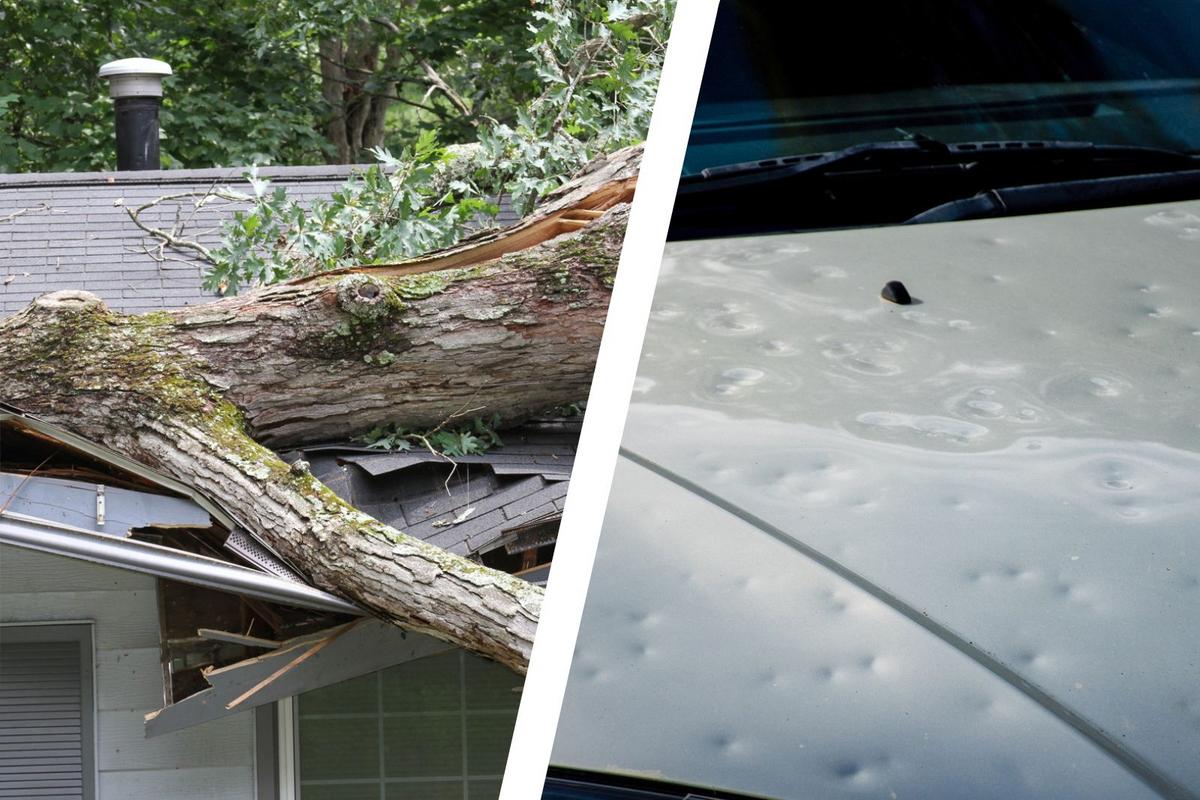
Tips to Dodge Storm Repair Scams in Texas
When storm season hits in Texas, it can sometimes hit hard. Many people are literally left to pick up the pieces of what a storm has done to their homes, cars, and lives.
How to Verify Storm Damage Repair Contractors in Texas
While many begin the cleanup process and struggle to cover costs, since insurance often falls short and deductibles are high, others hit the road, heading to the hardest-hit areas to make money offering repair services.
While many of these companies are legitimate, some are not, and they’re just looking to scam you.
How to Spot a Storm Repair Scam
Just look at any ordinary day, when someone comes to your door offering their services, nine times out of ten, they are a legit salesperson, but there is always that one that isn’t.
You’re already stressed about the property damage; you don’t need to be stressed about being scammed. The people who try to scam you usually:
- Cannot provide proper permits
- Push you to sign a contract
- Ask for money up front
The Better Business Bureau offers tips to avoid being scammed.
- Wait for Insurance Adjusters: Many are recovering, so insurance adjusters are busy. Temporary repairs can start now, but major ones take time.
- Research Before You Hire: Always ask for a city permit, check their company details, and take your time.
- Avoid Pressure: Legit companies won’t rush you into decisions. They’ll be there when you’re ready.
- Be wary about paying in advance for repairs. Any reputable company will work with you on a payment schedule that includes a final payment. Then, when the work is finished, you, your insurance company, and in some cases the city have inspected the work that has been done.
Should You Pay for Storm Repairs Upfront?
While most companies do not ask for payment upfront, some do, but make sure they show up and complete a full day of work before making a first payment.
The BBB suggests 1/3 of the payment after the first day of work, 1/3 when the project is halfway finished, and the last 1/3 when the project and inspections are finished. Do not pay in cash. If you are taking bids, don’t always go with the lowest or the first. These may not be your best deals.
What to Know About Fake Government Calls After a Disaster
The Federal Communications Commission also points out red flags when it comes to government disaster assistance.
Government Scam Red Flags:
- They ask for account information over the phone.
- They request a fee for disaster assistance applications.
- They use spoof numbers
A government agency will not call asking for your account information. If you get a phone call from someone claiming to be a government official. Hang up. Remember, you can always verify by calling the phone number listed on the agency’s official website.
Insurance Scam Warning:
- Don’t give personal info over the phone.
- Always verify by contacting your insurance provider directly.
People claiming to be contractors, home improvement, or even hail damage repair, may reach out saying that they have teamed up with your insurance provider.
Read More: Tornado Facts and Safety Tips for Storm Season in Texas
How to Research and Verify Texas Storm Repair Companies
No matter where you find the company, from a commercial on the radio, an ad on social media, a friend recommendation, or someone who knocks on your door, research the company. The Better Business Bureau is one of the great places to research reputable companies, and they have specific requirements for businesses when they join.
6 Common Scams Found in Texas
Here is a look at six of the most common scams found in the state of Texas. Remember these so you don’t become a victim.
Gallery Credit: Billy Jenkins
Protect Yourself From Texas Phone Scams
Gallery Credit: Chaz
Texas Storm Chaser Snags Two Tornado Selfies In Lubbock
Gallery Credit: Chaz

